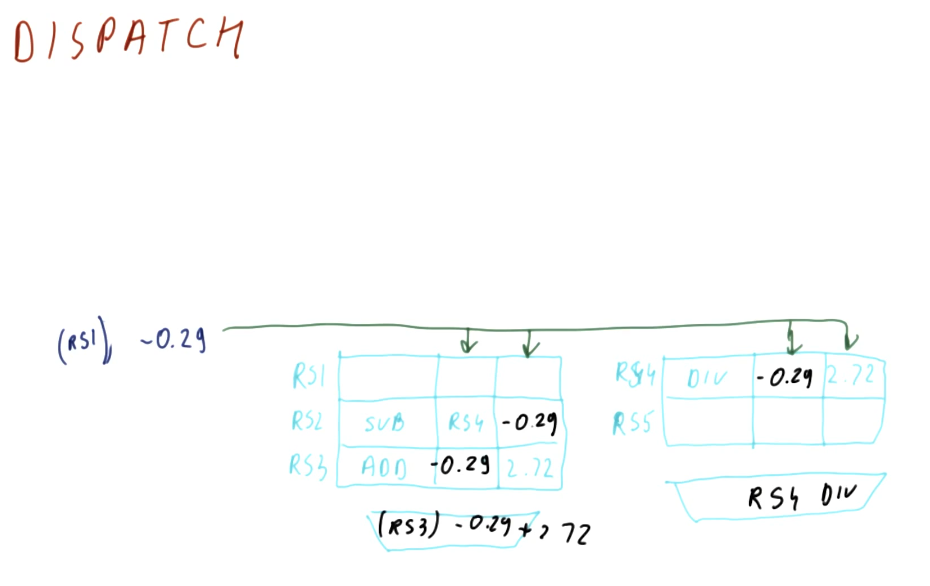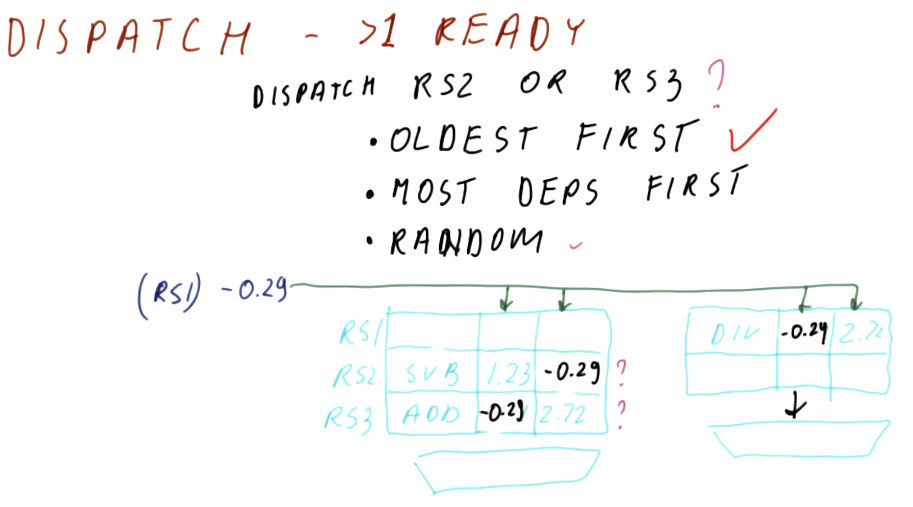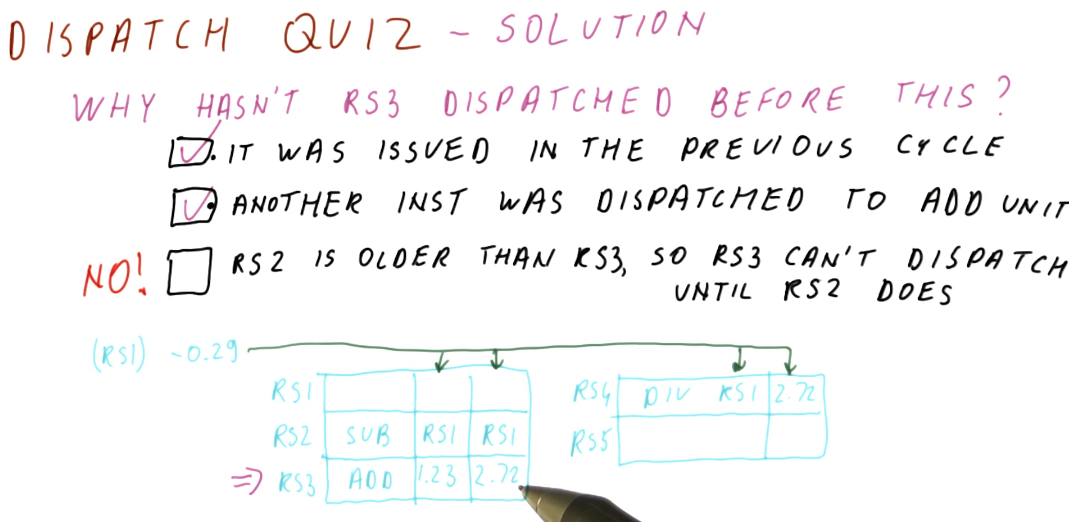Dispatching
Below is an excerpt from the class that showcases how dispatching works. The results of an instruction from a reservation station is broadcast - its generating reservation station number is attached to the value that it's generating. Instructions that depend upon a value from that reservation station are able to acquire the values necessary to be dispatched, and they will also broadcast their results in the same manner.

Dispatching when > 1 instruction is ready
Below is an excerpt from the lectures displaying a situation in which more than one instruction in the reservation station is ready to execute. How do we go about making the right decision for best performance? There are three options:
- Dispatching the oldest instruction first - the most fair option and most balanced for performance.
- Dispatching the instruction with the most dependencies - the highest performance option, however, it requires us to search all reservation stations and determine dependencies - power hungry.
- Randomly dispatching - not a bad option, and at some point every instruction will be dispatched, but performance could be degraded.

Dispatch quiz
Below is a quiz from the lectures on dispatching. The quiz asks why the
instruction held in RS3 hasn't executed before the current state of the
reservation stations. Three options are given, but only two are reasonable.
- The first option: "It was issued in the previous cycle" is reasonable because there can definitely be a time in which the instruction was issued too late so it didn't have time to execute.
- The second option: "Another instruction was dispatched to the adder" is
possible because maybe
RS1was currently executing on the adder to generate a value. - The third option: "RS2 is older than RS3" is not reasonable. The whole purpose of Tomasulo's algorithm is to support out-of-order execution. Instructions will be executed as soon as their values are available, despite how old an instruction is.
